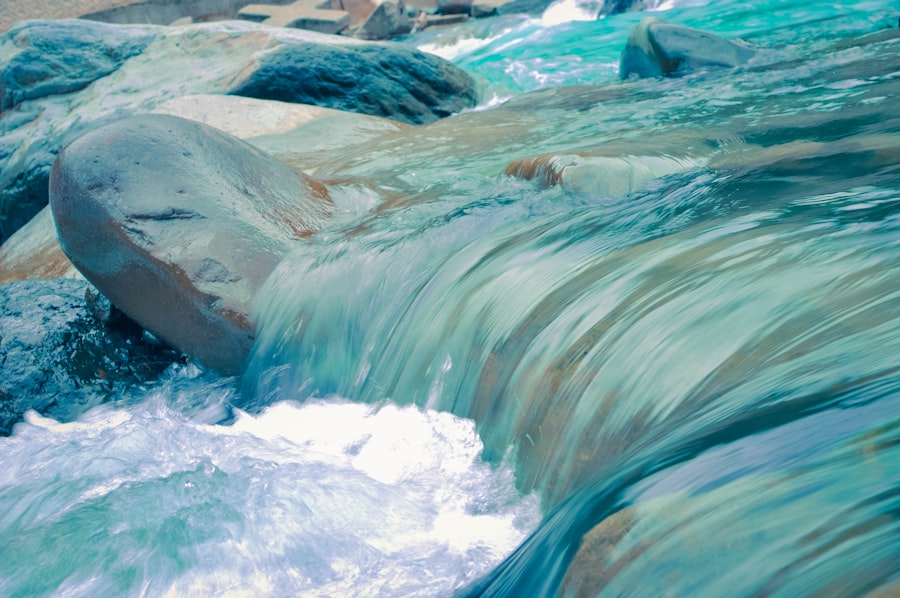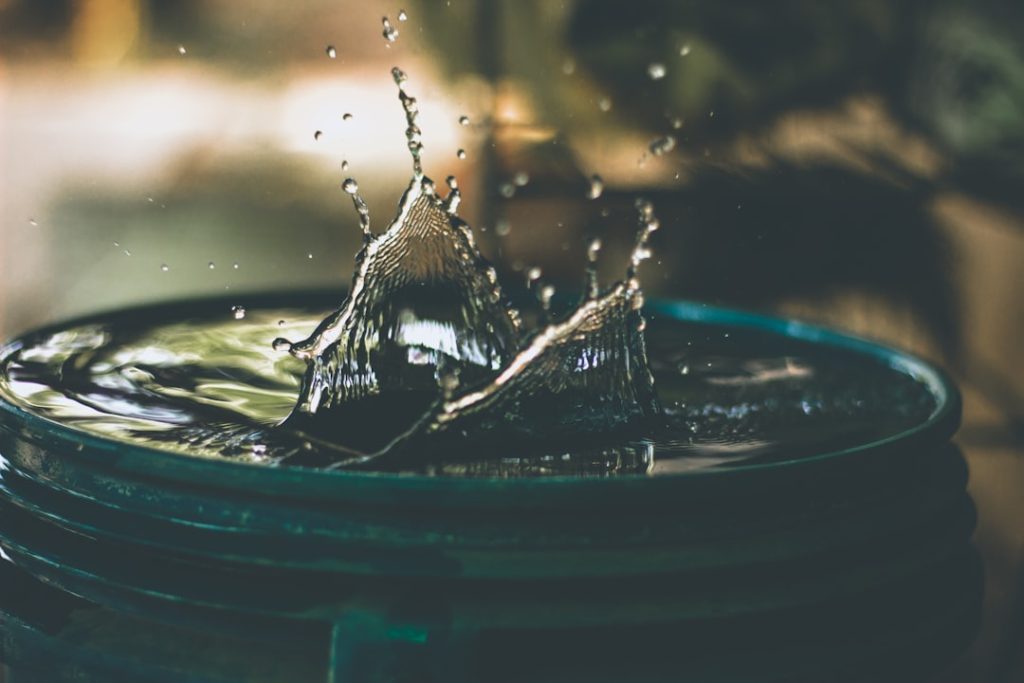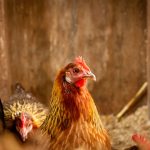Maintaining proper hydration for chickens during winter is essential for their health and productivity. Frozen water poses a significant risk of dehydration, which can negatively impact egg production, feather quality, and overall well-being. In severe cases, dehydration can be fatal.
Chickens may also consume less water if it is too cold, leading to reduced food intake and compromised health. Chicken owners must recognize these risks and implement strategies to ensure their flock has constant access to clean, unfrozen water. Dehydration is a primary concern when water freezes in chicken coops.
Without readily available water, chickens may not meet their daily hydration requirements, resulting in various health issues. These problems can include decreased egg production, poor feather condition, and potential organ failure. Furthermore, chickens may be reluctant to drink cold water, which can indirectly affect their food consumption, as water aids in digestion.
To prevent these issues, chicken owners should prioritize keeping water sources from freezing and maintaining an appropriate temperature for their flock’s comfort and health.
Table of Contents
- 1 Tips for Insulating the Water Container
- 2 Using Heated Waterers
- 3 Implementing a Water Heater
- 4 Utilizing Solar-Powered Options
- 5 Regularly Checking and Maintaining the Water Supply
- 6 Additional Considerations for Winter Water Management
- 7 FAQs
- 7.1 What are the risks of water freezing for chickens?
- 7.2 What are some methods to keep water from freezing outside for chickens?
- 7.3 Are there any natural ways to prevent water from freezing for chickens?
- 7.4 What should be considered when choosing a method to prevent water from freezing for chickens?
- 7.5 How often should water be checked and replaced in cold weather to prevent freezing?
Key Takeaways
- Frozen water can pose serious risks to chickens, including dehydration and decreased egg production.
- Insulating the water container with materials like foam or rubber can help prevent freezing.
- Heated waterers are a convenient and effective way to ensure chickens have access to unfrozen water.
- Implementing a water heater in the coop’s water supply can provide a consistent source of warmth to prevent freezing.
- Solar-powered options offer an environmentally friendly and cost-effective solution for keeping water unfrozen.
- Regularly checking and maintaining the water supply is crucial to ensure chickens have access to clean, unfrozen water.
- Additional considerations for winter water management include using heated bowls, adding electrolytes to the water, and providing warm water during extreme cold temperatures.
Tips for Insulating the Water Container
Container Insulation Methods
One effective method is to place the water container inside a larger, insulated container such as a cooler or bucket with insulation material packed around it. This helps to retain the heat from the water and prevent it from freezing as quickly.
Sheltered Placement
Another tip for insulating the water container is to place it in a sheltered area, such as inside the coop or a covered run. This can help protect the water from direct exposure to wind and cold temperatures, reducing the likelihood of freezing.
Additional Tips
Additionally, using a heated base or pad underneath the water container can help keep it from freezing in extremely cold temperatures. It is important to regularly check the insulation and make any necessary adjustments to ensure the water remains unfrozen for the chickens.
Using Heated Waterers

Using heated waterers is a convenient and effective way to ensure that chickens have access to unfrozen water during the winter months. Heated waterers are designed to keep water at a consistent temperature, preventing it from freezing even in extremely cold conditions. There are several types of heated waterers available, including heated bowls, heated bases, and heated fountains.
These options provide a constant source of warmth to keep the water from freezing, ensuring that chickens can stay hydrated throughout the winter. One benefit of using heated waterers is that they require minimal maintenance compared to other methods of preventing frozen water. Once set up, heated waterers can provide a reliable source of unfrozen water for chickens without the need for constant monitoring or adjustments.
Additionally, heated waterers are often designed with safety features to prevent overheating or electrical malfunctions, providing peace of mind for chicken owners. It is important to choose a heated waterer that is appropriate for the size of your flock and to follow the manufacturer’s instructions for installation and maintenance.
Implementing a Water Heater
Implementing a water heater is another effective way to prevent frozen water for chickens during the winter months. Water heaters are designed to keep the water at a consistent temperature, preventing it from freezing even in sub-zero temperatures. There are several types of water heaters available, including submersible heaters, tank heaters, and heated hoses.
These options provide a reliable source of warmth to keep the water unfrozen, ensuring that chickens have access to clean drinking water at all times. One advantage of using a water heater is that it can be used with existing water containers, making it a versatile option for chicken owners. Water heaters are often easy to install and require minimal maintenance, providing a convenient solution for preventing frozen water in the coop.
Additionally, some water heaters are designed with energy-saving features to minimize electricity usage, making them a cost-effective option for long-term use. It is important to choose a water heater that is appropriate for the size of your water container and to regularly check for any signs of wear or damage.
Utilizing Solar-Powered Options
Utilizing solar-powered options is an eco-friendly and cost-effective way to prevent frozen water for chickens. Solar-powered water heaters and warmers harness energy from the sun to keep the water at a consistent temperature, preventing it from freezing even in cold conditions. These options are ideal for chicken owners who want to reduce their environmental impact and save on electricity costs while ensuring their flock has access to clean drinking water throughout the winter.
One benefit of utilizing solar-powered options is that they require minimal ongoing costs once installed, making them a sustainable solution for preventing frozen water in the coop. Solar-powered options are often easy to install and require little maintenance, providing a hassle-free way to keep chickens hydrated during the winter months. Additionally, solar-powered options can be used in remote locations or off-grid coops where access to electricity may be limited.
It is important to choose solar-powered options that are designed for use in cold climates and to position them in an area that receives ample sunlight throughout the day.
Regularly Checking and Maintaining the Water Supply

Inspecting and Maintaining Water Containers
It is vital to inspect water containers for any leaks or damage and make necessary repairs or replacements as needed. This proactive approach ensures that chickens have access to unfrozen water at all times, even during extreme cold snaps or inclement weather.
Preventing Frozen Water
To prevent frozen water, multiple methods can be employed, such as insulating containers, using heated waterers or heaters, and utilizing solar-powered options. Having a backup plan in place is also essential in case one method fails or power outages affect heated waterers or heaters.
Ensuring Chicken Health and Hydration
By regularly checking and maintaining the water supply, chicken owners can ensure that their flock stays hydrated and healthy throughout the winter months. This diligence is critical for preventing frozen water and guaranteeing that chickens always have access to clean drinking water.
Additional Considerations for Winter Water Management
In addition to preventing frozen water, there are several other considerations for winter water management that can help ensure the health and well-being of chickens during the colder months. One consideration is providing warm or tepid water to chickens during particularly cold weather. This can encourage them to drink more and stay hydrated, even when temperatures are low.
Another consideration is increasing the number of water containers available to chickens, especially if they spend extended periods of time outdoors or in larger coops or runs. This can help ensure that there is always access to unfrozen water, even if one container freezes over. It is also important to monitor the behavior and health of chickens during the winter months, as they may be more susceptible to dehydration or other health issues related to cold weather.
Keeping an eye on egg production, feather quality, and overall activity levels can help identify any potential issues related to hydration or frozen water. Additionally, providing warm treats such as oatmeal or scrambled eggs can help increase moisture intake for chickens during cold weather. By considering these additional factors for winter water management, chicken owners can ensure that their flock stays healthy and hydrated throughout the winter months.
If you’re looking for ways to keep water from freezing outside for chickens, you may also be interested in learning about the best heater for a chicken coop. Poultry Wizard has a helpful article on this topic that provides valuable information on how to keep your chickens warm and comfortable during the winter months. Check it out here.
FAQs
What are the risks of water freezing for chickens?
Freezing water can lead to dehydration in chickens, as they may not be able to access enough water to stay properly hydrated. This can lead to health issues and decreased egg production.
What are some methods to keep water from freezing outside for chickens?
Some methods to prevent water from freezing for chickens include using heated waterers, insulating water containers, using heated bases, and using solar-powered water heaters.
Are there any natural ways to prevent water from freezing for chickens?
One natural way to prevent water from freezing for chickens is to use black rubber tubs or containers, as these can absorb heat from the sun and help keep the water from freezing.
What should be considered when choosing a method to prevent water from freezing for chickens?
When choosing a method to prevent water from freezing for chickens, it’s important to consider the climate, the number of chickens, the availability of electricity, and the budget for the equipment.
How often should water be checked and replaced in cold weather to prevent freezing?
In cold weather, water should be checked and replaced frequently to prevent freezing. It’s recommended to check the water at least twice a day and replace it with fresh, unfrozen water as needed.
Meet Walter, the feathered-friend fanatic of Florida! Nestled in the sunshine state, Walter struts through life with his feathered companions, clucking his way to happiness. With a coop that’s fancier than a five-star hotel, he’s the Don Juan of the chicken world. When he’s not teaching his hens to do the cha-cha, you’ll find him in a heated debate with his prized rooster, Sir Clucks-a-Lot. Walter’s poultry passion is no yolk; he’s the sunny-side-up guy you never knew you needed in your flock of friends!







